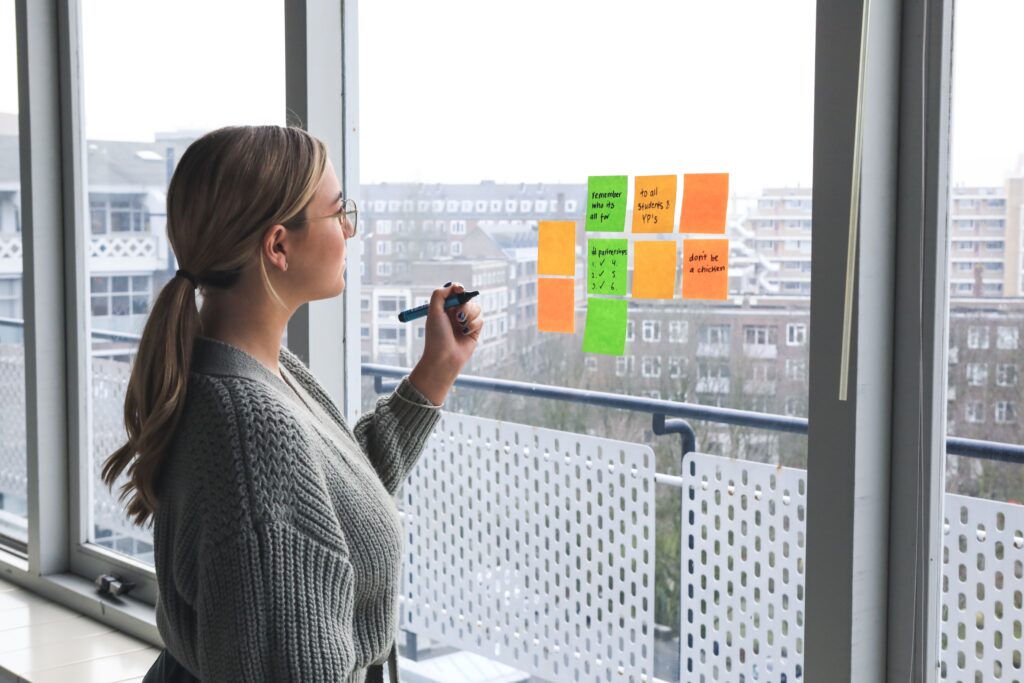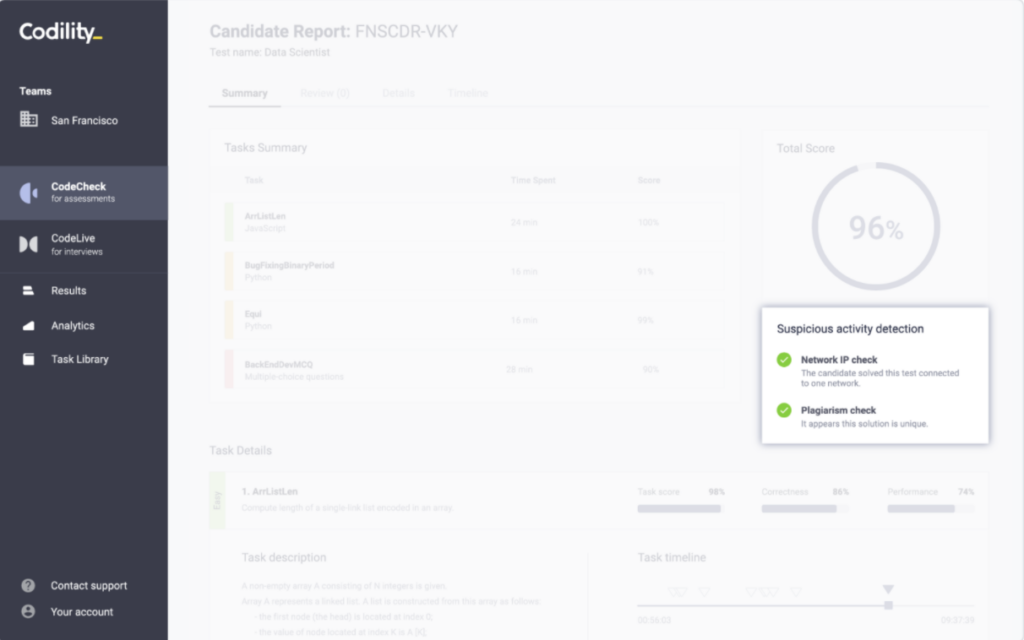Be the first to know
Sign up for a weekly dose of tech hiring news and updates.
Today, tech recruiters are dealing with talent and skills shortages while attempting to determine what the future of work will entail. It’s no surprise that 41% of recruiters find assessing candidates during the interview a challenge.
According to Computer Weekly, there was an average of 22.57 applications for each tech job offered in April 2020, up from 9.62 in April 2019, which begs the question: How do you efficiently recognize the right candidate for the role? Engineering managers favor curiosity, passion, and technical fit over anything else when it comes to hiring new tech talent. However, identifying these traits is tricky.
In this article, we’re sharing some of the best questions to ask when conducting a technical interview to help you find the right candidate. Plus, a recruiting checklist to run alongside your tech recruitment process.
10 Questions to Ask When Conducting a Technical Interview
1. What skills can you bring to this position?
Understand how this candidate can contribute to your company’s projects. Compare their answer to the skills you’re looking for to determine whether this is a good potential hire.
Here you’ll want to get an understanding of the candidates’ hard and soft skills to determine if not only they’re a technical fit, but a cultural fit as well. If they don’t have the soft skills you deem as necessary to fulfill this role, then you’ll want to determine if they’re teachable and if these skills are something that they can develop with good leadership.
2. What’s the biggest [technical] challenge you’ve faced in your work, and how did you solve it?
Learn more about the candidate’s problem-solving skills and ability to handle unexpected situations by asking this question. If you’re hiring a mid/senior-level engineer, this question will help you determine if they’re comfortable working and managing remote teams, handling and giving feedback, and understanding their preferred developing environment.
3. What coding language are you most and least comfortable with?
Find out the type of projects and code you can assign. You’ll also recognize potential learning opportunities for the candidate and will have a clearer idea of how the candidate can further their skillset with your team.
4. How would you explain our product to someone who’s not from the IT world?
Discover how this candidate prepared for your online programming interview and what they think of your product in their own words. This question demonstrates your candidate has done their homework and can provide valuable insight into how third parties determine what your product is and does.

5. Are you passionate about any tech projects outside of your day-to-day work?
This question is all about drive and passion. It’s good to have a developer who’s constantly curious about the world of tech. It shows promise and grit to better themselves. It’s worth noting here, you don’t necessarily need someone who’s working on a project in their free time. If they’re following along with projects or changes in their field it’s a promising sign of genuine enthusiasm for their work.
More like this: Upping Your CX for Technical Roles Part 1: Reachout & Assessment
6. What challenges do you expect to face in our company?
Occasionally, things don’t go so smoothly; your candidate most likely has experience with this. Find out how your candidate perceives your company and the processes they will go through to overcome hurdles. It’s a great insight into their preferred work culture.
7. Explain your research process when designing new software.
See what your candidate’s established processes look like and how they align with the potential projects you have in your product backlog. Dig deeper and you’ll find out how they collaborate with teams, their work style, and knowledge on research methods.
8. How do you make sure you deliver high-quality code? Do you use any tools?
Discover whether the candidate is comfortable with the tools you already use in your company, understand their QA/QC process, and if they’re comfortable with pair programming. This question is also good for your learning processes, perhaps you’ll discover something new!
You may also be interested in: Tips on How to Prepare for a Tech Assessment Test
9. Who was the leader that helped you most in your career? How?
This doesn’t necessarily have to be an answer related to the technical world. It’s good to find out how the candidate acquired soft skills and the type of person that inspires them. This is great to inform your onboarding buddy program – if you have one in place.
10. What’s the first thing you would do in this position? Tell me about a technical project you would like to implement here.
An important question to find out what vision the candidate has for your company and whether it aligns with your company goals. This gives insight into whether the candidate is thinking long-term or short-term company growth – both of which are great; it just depends on what your business needs.
Get the most out of your next online programming interview with this checklist
- ☑ Automate everything you can. Create an interview template. Streamline your interviews to be as efficient as possible. Come prepared with a list of topics you want to cover for each role, including questions to ask and use CodeCheck templates that you can tweak for the candidate and the role at hand.
- ☑ Prepare an evaluation form. Be open to feedback from your candidate, find out what they think of your hiring process, find brand ambassadors, and optimize your recruitment flow. If you can automate your feedback process, even better!
- ☑ Use software to manage interviews efficiently. In some cases, Zoom doesn’t cut it. Try tools like CodeLive: a live code whiteboarding platform to host more efficient interviews for your niche.
- ☑ Follow up with your interviewee, successful or not. Inform candidates about their progress with your business, regardless of what it is – keep it personal, and enable unsuccessful candidates to emerge as brand champions with a positive experience.
- ☑ Master the art of conducting technical interviews with role-specific assessments. After conducting your interview, try a role-specific assessment to streamline your processes. CodeCheck considers accuracy and performance to provide a qualitative score for a candidate’s assessment.

CodeCheck enables TA teams to collaborate with engineering managers – so everyone’s on the same page about a candidate’s skill set without necessarily needing to know how to code. Engineering managers will also be able to see how the candidate’s code evolved throughout, which will give insight into their problem-solving abilities.
Schedule a demo to discover more about how the Codility software engineering hiring platform can help you conduct a technical interview while improving candidate experience. Happy recruiting!
